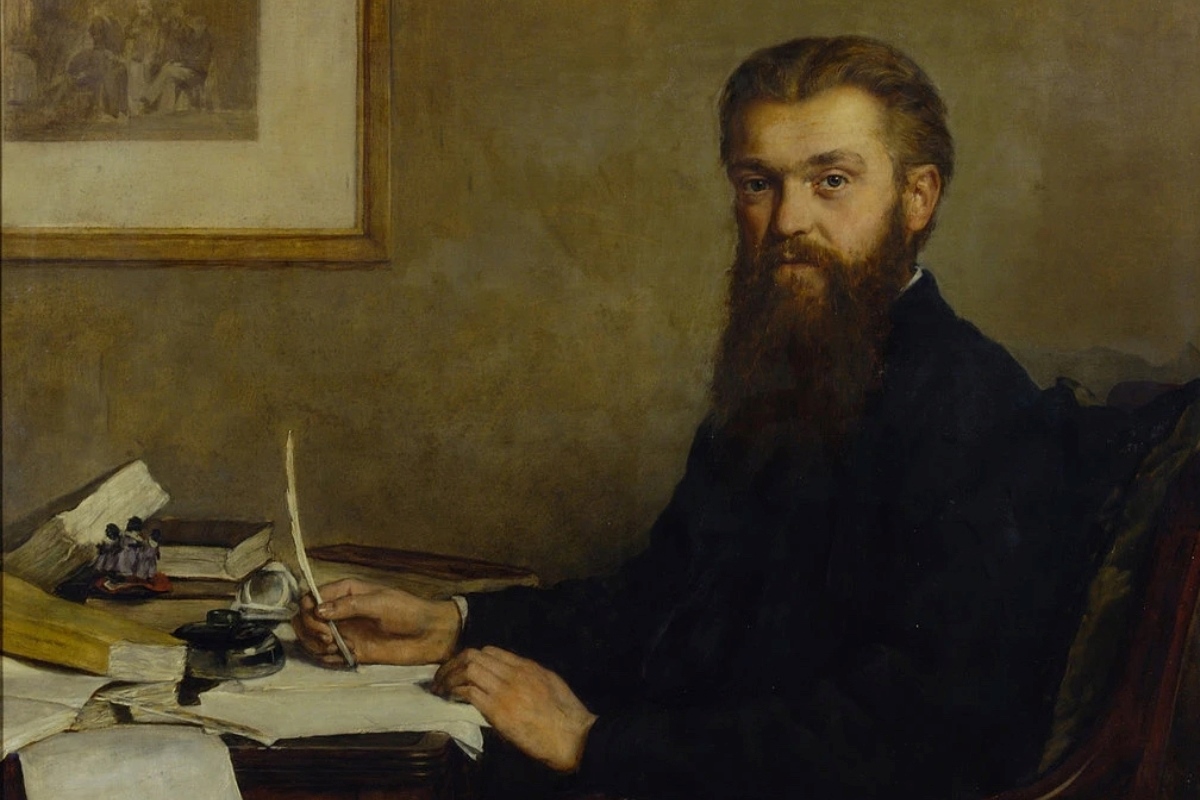
William Kingdon Clifford, born on May 4, 1845, was a remarkable figure in the field of mathematics and philosophy. His contributions in these areas continue to astound and inspire researchers and scholars to this day. Clifford’s life was tragically cut short at the age of 33, but his impact on the academic world cannot be overstated. In this article, we will delve into nine astounding facts about William Kingdon Clifford, shedding light on his accomplishments, his influential ideas, and the legacy he left behind. From his groundbreaking work in geometric algebra to his insightful thoughts on metaphysics and ethics, Clifford’s intellectual prowess was truly extraordinary. So, let’s explore the fascinating world of William Kingdon Clifford and discover the incredible impact he had on the realms of mathematics and philosophy.
Key Takeaways:
- William Kingdon Clifford was a brilliant mathematician and philosopher who revolutionized the field of mathematics with his groundbreaking work on geometric algebra and space-time.
- Clifford’s advocacy for evidence-based reasoning, agnosticism, and intellectual honesty continues to inspire scholars and influence various academic disciplines to this day.
William Kingdon Clifford was a renowned mathematician and philosopher.
William Kingdon Clifford was born on May 4, 1845, in Exeter, England. He had a brilliant mind and made significant contributions to both mathematics and philosophy during his short life.
Clifford’s work revolutionized the field of mathematics.
Clifford’s most influential contribution was the development of geometric algebra, also known as Clifford algebra. This groundbreaking mathematical framework unified various branches of mathematics and had a profound impact on fields such as physics, computer science, and engineering.
Clifford was a champion of the concept of scientific evidence.
Clifford strongly advocated for the use of evidence-based reasoning in scientific inquiries. He believed that beliefs should be formed based on empirical evidence rather than unsupported assumptions or blind faith.
Clifford’s famous essay “The Ethics of Belief” examined the role of evidence in forming beliefs.
In this thought-provoking essay, Clifford argued that it is morally wrong to believe in something without sufficient evidence. He emphasized the importance of intellectual honesty and critical thinking in the pursuit of knowledge.
Clifford was a vocal advocate for agnosticism.
Clifford questioned the existence of God and firmly believed in the principle of agnosticism. He argued that it is impossible for humans to have certain knowledge about the divine and that it is intellectually dishonest to claim otherwise.
Clifford’s work on space and time was ahead of its time.
Clifford made significant contributions to the understanding of space and time. His ideas laid the groundwork for Einstein’s theory of general relativity and had a significant impact on the field of theoretical physics.
Clifford’s untimely death cut short his promising career.
Tragically, Clifford passed away at the young age of 33 due to tuberculosis. Despite his short life, his contributions to mathematics, philosophy, and science continue to inspire and influence scholars to this day.
Clifford’s legacy lives on through the Clifford Algebra.
The Clifford Algebra, also known as Geometric Algebra, is a powerful mathematical tool that is still used today. It has applications in fields such as computer graphics, robotics, and quantum mechanics.
Clifford’s ideas sparked a revival of interest in his work.
In recent years, there has been a renewed interest in Clifford’s contributions. His concepts and theories are being revisited and further developed in various academic disciplines, solidifying his status as one of the most brilliant minds in history.
Conclusion
In conclusion, William Kingdon Clifford was an extraordinary figure whose intellectual contributions have left a lasting impact on various fields. From his groundbreaking work in mathematics and philosophy to his influential ideas on ethics and the theory of knowledge, Clifford’s ideas continue to shape our understanding of the world today. Through his rigorous analytical approach and commitment to truth and evidence, Clifford challenged conventional beliefs and laid the foundation for future scientific advancements.
His life may have been cut short, but his intellectual legacy lives on. Clifford’s work serves as a testament to the power of critical thinking, rational inquiry, and the pursuit of knowledge. His multidisciplinary approach and willingness to question assumptions have inspired generations of thinkers and continue to drive advancements in various disciplines. From mathematics to philosophy, from ethics to scientific inquiry, Clifford’s ideas remain as relevant and thought-provoking as ever.
As we delve deeper into the remarkable life and contributions of William Kingdon Clifford, we gain valuable insights into the power of human intellect and the pursuit of truth. Clifford’s ideas continue to challenge us to think critically, question assumptions, and push the boundaries of knowledge.
FAQs
Q: Who was William Kingdon Clifford?
A: William Kingdon Clifford was a prominent mathematician, philosopher, and scientist who lived during the 19th century. He made significant contributions to the fields of mathematics, philosophy, ethics, and the theory of knowledge.
Q: What were William Kingdon Clifford’s major contributions?
A: Clifford’s major contributions include his work in geometric algebra and the theory of matrices, his influential essay “The Ethics of Belief,” and his ideas on the role of evidence and proof in scientific inquiry.
Q: How did Clifford’s ideas impact philosophy?
A: Clifford’s ideas had a profound impact on philosophy, particularly in the areas of ethics, epistemology, and the philosophy of science. His essay “The Ethics of Belief” laid the groundwork for the evidentialist approach to belief formation.
Q: What is the significance of Clifford’s work in mathematics?
A: Clifford’s work in mathematics, particularly in geometric algebra and matrices, laid the foundation for modern algebraic structures and had a lasting impact on the development of mathematical theories and applications.
Q: How does Clifford’s legacy continue to influence modern thinking?
A: Clifford’s commitment to evidence-based reasoning and the pursuit of truth continues to inspire critical thinking and rational inquiry in various disciplines. His ideas on ethics and belief formation also remain relevant in contemporary discussions on morality and knowledge.
William Kingdon Clifford's groundbreaking work in mathematics and philosophy continues to inspire and influence thinkers today. Explore more captivating stories of 19th century scientists like John Tyndall, whose contributions shaped our understanding of the natural world. For those fascinated by numbers and equations, dive into a collection of mathematics facts that showcase the beauty and complexity of this field. And if you're curious about ancient wisdom, don't miss our article on Epictetus, a philosopher whose teachings on stoicism and self-control remain relevant in modern times.
Was this page helpful?
Our commitment to delivering trustworthy and engaging content is at the heart of what we do. Each fact on our site is contributed by real users like you, bringing a wealth of diverse insights and information. To ensure the highest standards of accuracy and reliability, our dedicated editors meticulously review each submission. This process guarantees that the facts we share are not only fascinating but also credible. Trust in our commitment to quality and authenticity as you explore and learn with us.


